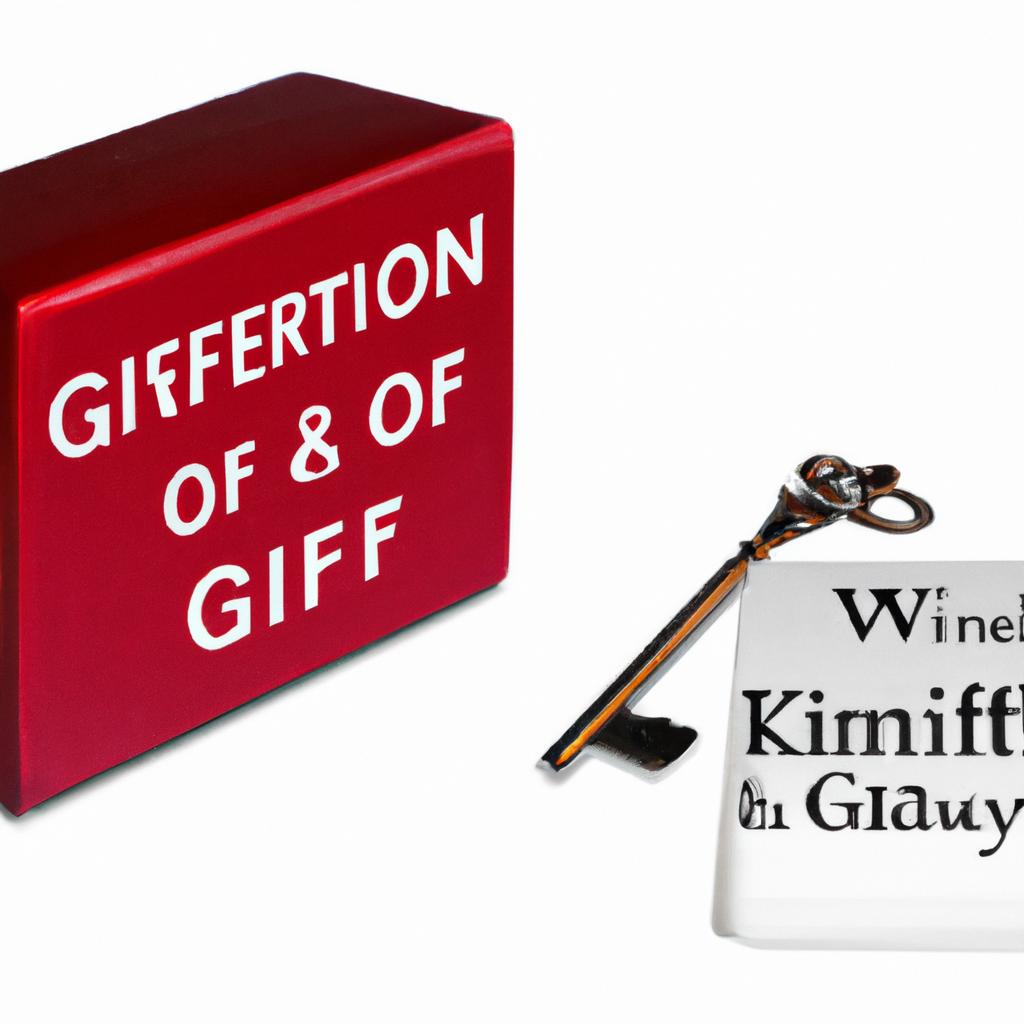In the realm of estate planning, the distinction between a gift and a bequest holds significant importance. While both may involve the transfer of assets to another individual, the nuances of each can have substantial implications for the donor and recipient alike. At Morgan Legal Group, a premier firm based in New York City specializing in estate planning, probate, elder law, Wills, and trusts, we understand the intricate differences between these two legal instruments and the complexities that can arise when navigating them. Join us as we unravel the intricacies of gifts versus bequests in the realm of estate planning.
Understanding the Difference Between Gifts and Bequests
When it comes to estate planning, it is crucial to understand the key differences between gifts and bequests. While both involve transferring assets to another person, there are important distinctions that can impact the distribution of your estate.
**Gifts:**
- Voluntary transfer of assets during your lifetime
- No legal requirement
- Can be revoked or changed
- Tax implications for gifts over a certain amount
Bequests:
- Transfer of assets through a Will after your death
- Legal document specifying the distribution of assets
- Irrevocable once the testator passes away
- Can be subject to probate process

Key Considerations When Choosing Between a Gift or Bequest
When deciding between a gift and a bequest, there are several key considerations that must be taken into account. One of the main factors to consider is the timing of the transfer of assets. A gift is typically given during the donor’s lifetime, while a bequest is transferred to the recipient after the donor’s death. This difference in timing can have important implications for the tax treatment of the transfer, as well as for the control that the donor retains over the assets.
Another important consideration is the level of control that the donor wishes to maintain over the assets. With a gift, the donor relinquishes control over the assets immediately, while with a bequest, the donor retains control until their death. This can be a crucial factor for individuals who wish to ensure that their assets are managed according to their wishes, even after they have passed away.

Implications of Gifts and Bequests in Estate Planning
When considering the , it is important to understand the key differences between the two. A gift is a present transfer of property or assets during the donor’s lifetime, while a bequest is a transfer of property or assets that takes effect upon the donor’s death through a Will or trust. Both gifts and bequests can play a crucial role in estate planning, but they have distinct implications that should be carefully considered.
One key distinction between gifts and bequests is the timing of the transfer. A gift is immediate, whereas a bequest takes effect at a later time. Additionally, gifts are subject to gift tax rules and annual exclusion limits, while bequests are typically subject to estate tax rules. When deciding between making a gift or a bequest in estate planning, it is important to consider factors such as tax implications, the nature of the assets being transferred, and the overall goals of the estate plan.

Expert Recommendations for Determining the Best Option for Your Estate
When it comes to deciding between a gift and a bequest for your estate, there are several factors to consider. Both options have their advantages and disadvantages, and it’s important to weigh them carefully before making a decision. Here are some expert recommendations to help you determine the best option for your estate:
Gift:
- Immediate transfer of assets to the recipient
- Can reduce the size of your taxable estate
- Can be a great way to provide financial support to loved ones during your lifetime
Bequest:
- Assets are transferred to the recipient upon your passing
- Can provide for loved ones after you’re gone
- Allows for more flexibility and control over your assets during your lifetime
Q&A
Q: What is the difference between a gift and a bequest?
A: A gift is something that is given freely and voluntarily to another person while the giver is still alive. On the other hand, a bequest is a gift that is included in a person’s will and only given after their death.
Q: Can a gift and a bequest have the same value?
A: Yes, both a gift and a bequest can have the same value. It ultimately depends on the individual’s intentions and circumstances.
Q: Are there any tax implications for gifts and bequests?
A: Yes, there are tax implications for both gifts and bequests. Gifts may be subject to gift tax, while bequests may be subject to estate tax.
Q: Which is more common, giving a gift or leaving a bequest?
A: It depends on the individual and their personal preferences. Some people prefer to give gifts during their lifetime, while others prefer to leave bequests in their will.
Q: What are some considerations to keep in mind when deciding between a gift and a bequest?
A: Some considerations to keep in mind include the recipient’s financial situation, tax implications, personal preferences, and estate planning goals. It is important to consult with a legal or financial advisor to determine the best option for your specific circumstances.
In Conclusion
In conclusion, when it comes to deciding between giving a gift and leaving a bequest, it ultimately comes down to personal preference and circumstances. Whether you choose to give a gift to someone while you are alive or leave a bequest in your will, both options have their own unique benefits and considerations. Whichever path you choose, make sure to carefully consider your intentions and the impact your decision will have on your loved ones. Ultimately, the act of giving, whether in the present or after you’ve passed, is a powerful way to show your love and care for those around you.

